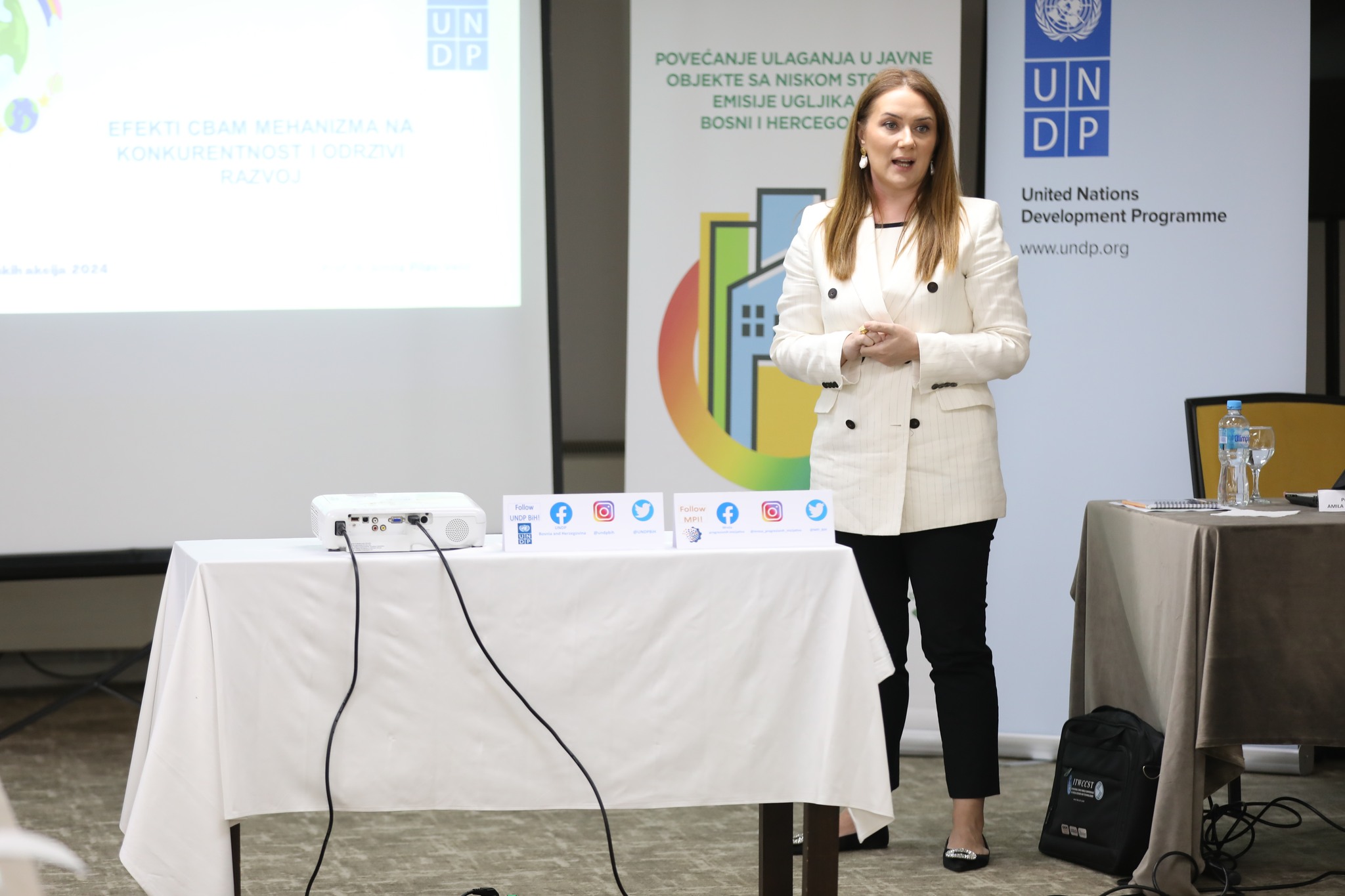Encouraging Political Action and Cooperation on Climate Issues
UNDP Launched Climate Action Academy 2024
June 2, 2024
UNDP in Bosnia and Herzegovina successfully launched the Climate Action Academy 2024, an initiative that, for the second consecutive year, offers selected officials from parliaments, assemblies, and councils the opportunity to gain expert knowledge on key climate-related topics. The Academy aims to stimulate more robust action in tackling climate change challenges and enhance cooperation among various political representatives in this field.
Alongside expert lectures, participants will have the opportunity to go on field visits and directly observe best practices achieved through UNDP projects, implemented with the support of international and local partners.

At the launch of the Academy, Raduška Cupać, Head of the Energy and Environment Sector at UNDP in Bosnia and Herzegovina, thanked the participants of the Academy for their sustained interest in these topics. She underscored the significance of cooperation and collective efforts on green policies at all levels of government in the country to effectively tackle the challenges posed by climate change.
Saša Magazinović, a member of the House of Representatives of the Parliamentary Assembly of Bosnia and Herzegovina and Chairman of the Green Club, expressed gratitude to UNDP for supporting this initiative, which serves as a platform for dialogue, bringing together representatives from all political parties in Bosnia and Herzegovina. He emphasized that these issues are relevant to all and provide a common ground to transcend everyday political divisions.

First Module of the Climate Action Academy
The first module of the Academy was held from 31 May to 2 June 2024 in Sarajevo, with a focus on innovative financing models for energy efficiency, and international obligations of Bosnia and Herzegovina.

Sanja Kapetina, Ministry of Foreign Trade and Economic Relations of BiH, and Siniša Ubiparipović, UNDP in BiH
On the first day, representatives of UNDP and the Ministry of Foreign Trade and Economic Relations of Bosnia and Herzegovina presented the National Investment Framework (NIF), a model for financing energy efficiency projects.
Participants visited the Public Institution for the Care of Mentally Disabled Children and Youth in Pazarić, where energy efficiency measures were implemented through the NIF model, leading to significant improvements of the conditions for both the staff and beneficiaries, as well as substantial cost savings. The works were financed by investments from the Ministry of Spatial Planning of FBiH, complemented by a loan from the World Bank, and implemented through UNDP's project "Scaling-up Investment in Low-Carbon Public Buildings - LowCarbon" that is funded by the Green Climate Fund (GCF).

Aldin Međedović, UNDP in BiH
The second day focused on the inventory of greenhouse gas (GHG) emissions, which is crucial for fulfilling Bosnia and Herzegovina's international obligations under the UNFCCC, the Paris Agreement, and the Sofia Declaration, as well as mitigating the adverse impacts of climate change. In this regard, UNDP presented the efforts of the 5NC project funded by the Global Environment Facility (GEF), actively contributing to the development of policies for reducing greenhouse gas emissions.

Prof. dr. Amila Pilav-Velić, School of Economics and Business, University of Sarajevo
Prof. dr. Amila Pilav-Velić, Vice Dean for Scientific Research and Projects at the School of Economics and Business, University of Sarajevo, spoke about the effects of the EU Regulation on the Carbon Border Adjustment Mechanism (CBAM) on competitiveness and sustainable development in Bosnia and Herzegovina. To remain competitive in the EU market, companies in Bosnia and Herzegovina must prepare for CBAM introduction in January 2026 by analyzing their operations, measuring and reporting carbon emissions, and reducing emissions through implementation of new, clean technologies and renewable energy sources. It was emphasized that while CBAM presents challenge, it also offers an opportunity for companies to improve their production practices and sustainable business models, thereby contributing to environmental protection and industry decarbonization.
Participants emphasized the significance of the Climate Action Academy, which enables them to engage more effectively in climate-related issues in their activities.
In the upcoming two modules, the focus will be on risk management, with a special emphasis on natural solutions to strengthen resilience to climate change and ensure biodiversity protection in Bosnia and Herzegovina, while the third module will address environmental protection, legal and institutional frameworks, harmonization with EU and international standards, environmental crime, as well as the management of hazardous waste and chemicals.
The Academy is organized by a Sarajevo-based non-governmental organization, the Network of Progressive Initiatives (MPI).

 Locations
Locations








